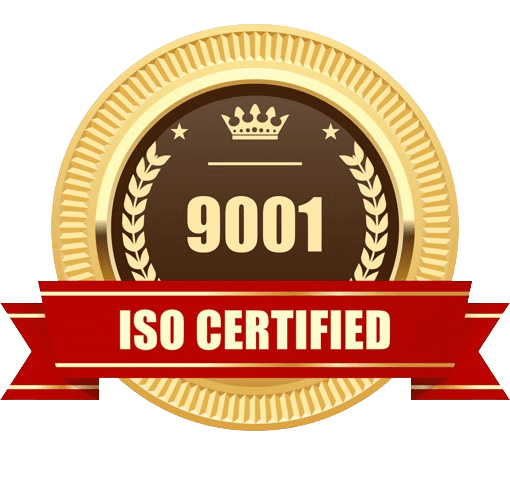Social Media Integrations to Boost Your eCommerce Reach

In today’s digital landscape, eCommerce and social media are more intertwined than ever before. Platforms like Instagram, Facebook, and Pinterest have evolved into powerful sales channels that offer a direct link between brands and consumers. But here’s the kicker: merely having a profile on these platforms won’t cut it. To truly expand your eCommerce reach, you must leverage social media integrations that allow seamless interaction between your store and these platforms.
This post will explore how to harness social media integrations to boost your eCommerce business, focusing on key platforms, tools, and strategies that can take your brand to the next level. Whether you’re aiming to drive more traffic, increase conversions, or enhance customer engagement, we’ve got actionable tips to help you succeed. Let’s dive in!
Why Social Media Integrations Matter for eCommerce
Social media has become more than a space for sharing memes and catching up with friends. With billions of active users worldwide, these platforms offer an immense pool of potential customers. Integrating your eCommerce store with social media can:
- Increase brand visibility
- Drive targeted traffic
- Boost customer engagement
- Make the shopping experience more convenient for users
In fact, 93% of shoppers rely on social media to help them make purchase decisions, according to a report by BigCommerce. By integrating your store with social channels, you can create a seamless customer journey that spans discovery to purchase.
Related: Best Practices for Boosting Conversion Rates in Digital Marketing

Key Social Media Platforms to Leverage
1. Instagram
Instagram is a visual powerhouse with over 1 billion active users, making it ideal for showcasing products. With features like Instagram Shopping, brands can tag products in posts and stories, allowing users to shop directly through the platform. Integrating Instagram with your eCommerce store makes the entire shopping experience more fluid and engaging.
To set up Instagram Shopping, you’ll need to link your product catalog to your Instagram Business account via Facebook’s Commerce Manager. This enables users to tap on your posts and purchase items without leaving the app—a win for both user experience and conversions.
Check out Instagram’s guide on setting up Instagram Shopping for more details.
2. Facebook
With 2.8 billion monthly active users, Facebook offers more than just ads—it’s a thriving marketplace. Facebook Shops allows businesses to create customizable storefronts that users can browse, share, and even purchase directly through the platform. Integrating Facebook with your store helps turn your social media followers into paying customers.
Moreover, you can link your Facebook Shop to Instagram, creating a cohesive shopping experience across both platforms. Use features like Live Shopping to showcase products in real time, creating an interactive way for followers to shop.
Learn more about setting up Facebook Shops by visiting the official Facebook Business guide.
3. Pinterest
Pinterest is not only a social network but also a visual discovery tool. The platform boasts over 400 million users who come for inspiration and often leave with new products. Through Rich Pins and Buyable Pins, you can link your product catalog to Pinterest, allowing users to shop right from the platform.
Pinterest’s user base skews towards people looking to buy, which is great for eCommerce brands. It’s a valuable platform for niches like fashion, home decor, and lifestyle products.

Practical Strategies for Social Media Integration
1. Shoppable Posts and Stories
One of the best ways to leverage social media integrations is through shoppable posts and stories. Platforms like Instagram and Facebook allow you to tag products in your content, making it easy for users to purchase without navigating away from the app. This convenience leads to higher conversion rates.
Related: How to Optimize Your Shopify Store for Better SEO Performance
2. User-Generated Content (UGC)
Encouraging your followers to share photos and reviews of your products is an excellent way to build trust and credibility. With the right social media integrations, you can easily pull user-generated content into your eCommerce site, making it part of your product pages or social proof sections.
3. Live Shopping Events
Platforms like Facebook and Instagram offer live-streaming features that allow you to sell products in real time. Live shopping combines the excitement of live video with the convenience of eCommerce, creating an interactive shopping experience for your audience.
4. Integrating Customer Support
Many social platforms, especially Facebook, allow businesses to integrate customer support features like Messenger. This offers users direct access to your support team without leaving the platform, ensuring a seamless experience from discovery to post-purchase.
Related: How to Measure the Success of Your Digital Marketing Campaigns.
Tools for Seamless Social Media Integration
To make the most of your social media integrations, you’ll need the right tools. Here are some popular platforms that can help:
- Shopify: Shopify integrates easily with Instagram, Facebook, and Pinterest. It also allows for easy syncing of product catalogs across multiple social channels.
- Hootsuite: This social media management tool helps you schedule posts, track engagement, and monitor social conversations about your brand.
- Buffer: Like Hootsuite, Buffer offers robust social media scheduling tools but also includes features for measuring post-performance and engaging with customers.
How TurnOnWeb Solutions Can Help Boost Your eCommerce with Social Media Integrations
At TurnOnWeb Solutions, a leading web design company in Pune, we specialize in helping eCommerce businesses leverage the power of social media integration to expand their reach and boost sales. Our services include:
- Custom Social Media Integration: We seamlessly connect your online store to major platforms like Facebook, Instagram, and Pinterest, enabling you to sell directly through shoppable posts and ads.
- Social Media Strategy: We develop tailored strategies to grow your social media presence and engage with your audience in a meaningful way, boosting traffic to your store.
- Ad Campaign Management: Our team creates and manages targeted social media ads to drive conversions, optimizing every ad for maximum ROI.
- Analytics & Reporting: We offer in-depth analytics and reporting services so you can track the success of your social media efforts and make data-driven decisions.
- Ongoing Support: We provide continuous support to ensure that your social media integrations remain up-to-date and effective as platforms evolve.
Partner with TurnOnWeb Solutions to unlock the full potential of social media for your eCommerce business, and reach a wider audience while driving higher conversions.
Conclusion
Social media integrations can revolutionize your eCommerce strategy. By tapping into platforms like Instagram, Facebook, and Pinterest, you can expand your reach, build stronger relationships with your audience, and make it easier for customers to shop with you. The key is to create a seamless experience, from discovery to checkout, that encourages engagement and drives sales.
Ready to take your eCommerce business to the next level? Start integrating social media with your online store today!
People Also Ask
1. What is social media integration in eCommerce?
The best social media platforms for eCommerce integration depend on your target audience, but popular options include:
4. What are the benefits of integrating social media with my online store?
Integrating social media with your online store offers several benefits, including:
- Increased brand visibility and engagement.
- Enhanced customer experience through seamless social shopping.
- Higher conversion rates by reaching a wider audience.
- Real-time customer feedback and engagement.
- Improved SEO as social signals (shares, likes, comments) contribute to brand credibility.
5. Can I sell products directly on social media platforms?
Yes, many social media platforms now offer integrated eCommerce solutions that allow you to sell products directly. Instagram and Facebook offer shoppable posts and Facebook Shops, where users can browse and purchase items without leaving the platform. Pinterest has buyable pins, and TikTok has integrated shopping ads, making it easier than ever to turn social followers into paying customers.
- QUICK LINKS
TurnOnWeb Solutions - Zoho's Partner
- QUICK LINKES
- SERVICES




